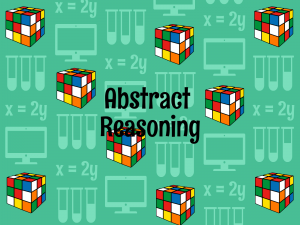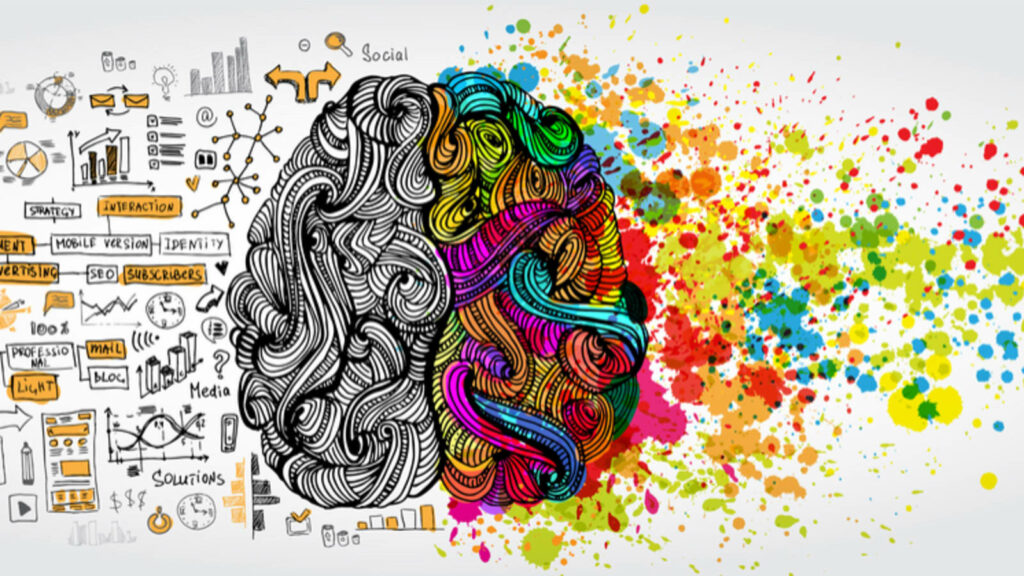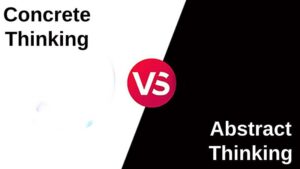What is abstract thinking? It’s the ability to think creatively, without preconceived notions. It entails looking beyond what is in front of you and examining your surroundings from different angles. Abstract thinkers are imaginative and innovative people who can solve problems no matter how difficult they may seem at first glance. The article will discuss the benefits of abstract thinking, as well as some tips for becoming a better thinker.
What Is Abstract Thinking?
Abstract thinking is the ability to think about things that you cannot see, hear, touch or smell.
This type of thinking allows humans to engage in symbolic behaviors such as writing and talking. It also enables us to create cultures with different systems for representing abstract ideas like mathematics and music. Understanding how this process works can help improve education, cognitive rehabilitation, and mental health care.
How Does It Develop?
In psychology, abstract thinking is thought to develop during adolescence. This is when children start to think about things in terms of their relationships to other things. They also become better at seeing the world from different perspectives.
Abstract Thinking In Education
One way to help students learn abstract concepts is by using an analogy. Analogies are comparisons between two things that are not alike. They can be used to help students understand relationships between concepts and see new ways of thinking about things.
Abstract Thinking In The Real World
In the real world, abstract thinking is used in a variety of ways:
- Scientists use it to come up with new hypotheses about how the world works.
- Artists use it to create paintings and sculptures that express their ideas in a visual way.
- Lawyers use it to argue cases in court. And people from all walks of life use it to make decisions every day.
Abstract Thinking And Mental Health
In some cases, abstract thinking can be a sign of mental health problems such as schizophrenia or bipolar disorder. These disorders involve disruptions in the way people think about things. This can lead to abnormal thoughts or delusions.
Factors Affecting Abstract Thinking
The factors that affect it include:
- Age
- Gender
- Intelligence
Age
The ability to think abstractly generally develops during adolescence. This is when children start to think about things in terms of their relationships to other things and become better at seeing the world from different perspectives.
Gender
There is still a lot of research that needs to be done on this topic. Some studies suggest that girls are more likely to engage in abstract thinking than boys, but there is no definitive answer yet.
Intelligence
Intelligence has been shown to be positively correlated with the ability to think abstractly. This means that smarter people are typically better at thinking about things in terms of their relationships with other things and seeing the world from different perspectives.
Abstract Thinking vs. Concrete Thinking
Abstract Thinking and Concrete thinking are two very different types of thinking:
- Concrete thinking is the ability to think about things that you can see, hear, touch and smell.
- Abstract thinking is when children start to think about things in terms of their relationships with other things. Children also become better at seeing the world from different perspectives.
- Abstract thinking enables humans to engage in symbolic behaviors such as writing and talking helping improve education, cognitive rehabilitation, and mental health care.
Relationship Between Abstract Thinking And Intelligence
The relationship between abstract thinking and intelligence is still being studied. Some people believe that abstract thinkers are more intelligent because they can come up with new ideas and solutions to problems. Others believe that concrete thinkers are smarter because they can apply their knowledge to the real world. More research is needed to determine if there is a correlation between these two traits.
Abstract Thinking Exercise
Some examples of abstract thinking exercises include:
- Thinking about the color blue without picturing a specific object.
- Imagining what it would be like to be someone else.
- Considering how you would feel if you could fly.
- Thinking about time in terms of distance instead of minutes or hours.
All of these exercises require students to use their imaginations and come up with responses that are not based on reality. This can help them develop their ability to think abstractly. In some cases, using analogies can also help students learn abstract concepts.
Benefits Of Abstract Thinking
The benefits of abstract thinking are many such as the ability to:
- Think about things in terms of their relationships with other things.
- See the world from different perspectives.
- Engage in symbolic behaviors such as writing and talking.
- Create cultures with different systems for representing abstract ideas like mathematics and music.
- Abstract thinking allows humans to do some pretty amazing things. It helps us learn, communicate, and come up with new ideas. Understanding how this process works can help improve education, cognitive rehabilitation, and mental health care.
Limitations 
The limitations of abstract thinking include:
- Abstract thinkers may have a difficult time applying their knowledge to the real world.
- They may find it difficult to come up with new ideas and solutions to problems.
- They may be unable to understand complex concepts.
These limitations can be overcome by teaching students how to apply their abstract thinking skills to concrete tasks. This can help them learn new information and solve problems.
When It Is Not Helpful?
There are times when abstract thinking is not helpful. For example, if someone is trying to remember a specific detail, it may be better to think about the concrete objects associated with that detail instead of using abstract concepts.
How Can You Help A Student Who Struggles With It?
If a student struggles with it, there are several things that you can do to help them:
- Encourage them to use analogies to explain complex ideas.
- Help them come up with real-world applications for abstract concepts.
- Teach them how to break down complex problems into smaller parts so they can easier understand them.
It is an important skill that can be used in many different areas of life. By understanding how it works, we can improve education, cognitive rehabilitation, and mental health care.
Conclusion
This is the kind of thinking that goes beyond your everyday thoughts. It’s a way to make connections between different things and ideas, sometimes in surprising ways. This type of thinking may seem difficult at first, but it can be used as a tool for creativity, and even business success. If you want to learn how abstract thought works or whether this style might work better for you than other styles, contact us right away. You’ll find some great insights from our psychologists about what makes an idea creative and why we should use more abstract reasoning when brainstorming product ideas.
If you are looking for affordable Online Counseling MantraCare can help: Book a trial therapy session








